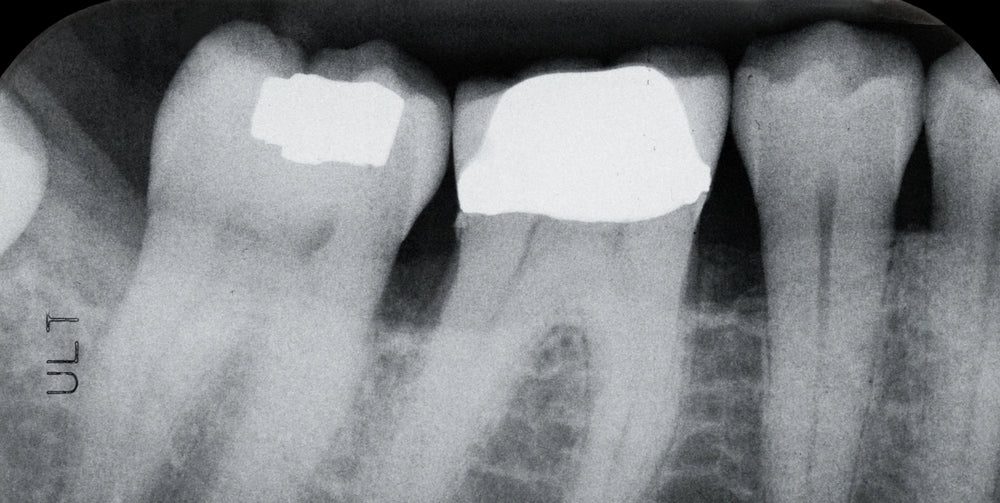
Can I Get Dental Implants with Bone Loss?
|
Time to read 5 min
|
Time to read 5 min
Dental Implants are the most widely used and well-known way to replace damaged or missing teeth, But, if you don't have enough bone in your jaw, or the bone is weak, then this presents a challenge.
People frequently ask whether they can get dental implants with bone loss. The answer is yes, but it takes some extra work as there has to be a secure place to insert the implant. This requires that the bone does needs to be built up or replaced as a part of the procedure.
Let's have a look into the ins and outs of dental implants and why bone is so important when getting one.
First, the word “implant” means to simply place, fix or plant something into something.
Dental implants are artificial tooth roots, usually made of titanium, that are surgically placed into the jawbone to replace missing teeth. Over time, the implant integrates with the bone, providing a sturdy base for attaching a dental crown, bridge, or denture.
By using screw-like devices, surgeons insert implants into the jawbone. The implant acts as an anchor to an artificial tooth, also known as a crown. The crown is then made to fit the patient's mouth and match the shade of the teeth as crowns are meant to look, feel, and function like natural teeth.
As stated earlier, you need a strong bone structure to fix and support the implant–just like you need a strong foundation to secure a home in place.
This is often an issue in dental implants as they are done to replace a missing tooth. When you lose one of your teeth, it becomes an issue for the area in your mouth surrounding that missing tooth as there is now decayed or weakened bone. This affects the jawbone, the adjacent teeth and the gum tissue as well. This is why it's important to fix missing or damaged teeth as early as possible as implants can help to maintain your jaw's strength.
A dental bone graft is required when there is a loss of bone within the jaw.
Bone grafting is a surgical procedure that involves transplanting bone tissue to repair and rebuild diseased or damaged bones. This process is essential for patients who need dental implants but lack sufficient bone support due to issues like periodontal disease, injury, or atrophy.
This procedure is done prior to the placement of dental implants as well as when the loss of bone is negatively impacting neighboring teeth. Dental bone grafting is a common procedure and in most cases is done several months before inserting the dental implant.
Discover More:Are Your Teeth Bones | What Are Teeth Made Out Of | Teeth Vs Bone
Yes, it is possible to receive dental implants if you have periodontal disease, but it depends on the severity of the disease. The first step is to treat and manage the periodontal disease to stabilize the condition. This may involve deep cleaning procedures, medication, and improved oral hygiene practices .
Once the periodontal disease is under control, your dentist will assess the feasibility of dental implant placement. In some cases, additional procedures like bone grafting may be necessary to ensure proper implant stability.
A crucial part of addressing periodontal disease is the restoration of a healthy oral microbiome. This is because the root cause of periodontal disease lies with bacteria and having a healthy oral bacterial balance is the key to preventing oral disease.
Bone Structure and the Support of Dental Implants
With dental implants, the implants are secured to the patient's gums and jaw bone with the aid of tiny screws. Particularly in situations where implants are meant to replace missing teeth, dentists may advise patients that their jawbones do not have enough structure or density for them.
One thing that happens when you lose a tooth is that your jawbone adapts to the changing circumstances. In the mouth, where the tooth used to be, the jawbone shrinks and recesses because there is no longer an actual tooth there. The nutrition and the materials that were used by the jawbone to help support the tooth would be diverted to different parts of the mouth. This results in a reduction of density as well as a bone's structural strength, rendering it unable to support the implant.
Also, periodontal disease, as it advances, will weaken bone structure.
Effective bad breath remedies include:
Gentle and regular scraping of the tongue
Regular oral care practices such as daily brushing and flossing
Professional deep cleanings and plaque removal
The ongoing use of oral probiotics.
One, the probiotics compete with the existing bad bacteria and reduce their presence by “crowding them out”
Two, the probiotics produce BLIS or “bacteriocin-like-inhibitory-substances” which is a technical way of stating that one probiotic strain (bacteria) can produce a substance that inhibits or kills off other bacteria. Three, by working to control gingivitis, gum disease and tooth decay these probiotics reduce the very sources of bacteria-generated odors in the mouth.
Studies have shown a clear reduction in plaque levels and gingivitis symptoms when oral probiotics were administered to patients with moderate to severe gingivitis.


